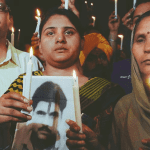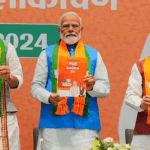In a groundbreaking ruling, the Bombay High Court has shed light on a seldom-discussed aspect of marital discord: relative impotency. The case, which revolves around a 17-day marriage marred by non-consummation, underscores the profound impact of intimate relations on the fabric of matrimony. Against the backdrop of societal taboos and hushed whispers, the court’s decision represents a beacon of hope for those grappling with similar issues. This article delves into the intricacies of the case, its implications, and the broader conversation it ignites surrounding sexual health and marital rights.
Unveiling the Case
At the heart of the matter lies the plight of a young couple whose union quickly unravelled amidst allegations of relative impotency. Married according to Hindu rites and customs, the husband and wife embarked on a brief honeymoon to Bengaluru, only for their dreams of marital bliss to dissipate into thin air. The wife, disillusioned by her husband’s apparent disinterest in her, made the courageous decision to seek annulment on the grounds of non-consummation. Her plea, rooted in a sense of betrayal and agony, laid bare the stark realities of their short-lived union.
The Legal Battle Unfolds
The legal saga unfolded as the wife sought recourse through the family court, invoking Section 12(1)(a) of the Hindu Marriage Act, 1955. Her petition, echoing her anguish and disillusionment, painted a poignant picture of a marriage devoid of intimacy and connection. In response, the husband, while admitting to the lack of consummation, attempted to shift blame onto his wife, citing an inability to establish physical relations due to mental or emotional disconnect. However, the court saw through the veils of deflection and delved into the crux of the matter: relative impotency.
The High Court’s Verdict
In a watershed moment, the Bombay High Court delivered a verdict that reverberated across legal corridors and societal norms. The division bench, led by Justice Vibha Kankanwadi and Justice SG Chapalgaonkar, upheld the wife’s plea for annulment, citing the husband’s admission of relative impotency. The court’s ruling, rooted in compassion and pragmatism, underscored the need to address the agonizing realities faced by young couples trapped in dysfunctional marriages. By granting the annulment, the court paved the way for the aggrieved parties to reclaim their autonomy and chart their own paths forward.
Implications and Reflections
ramifications of the court’s decision extend far beyond the confines of this particular case. It prompts a critical examination of societal attitudes towards sexual health and marital rights, challenging entrenched norms and stigmas surrounding intimate relationships. The notion of relative impotency, often relegated to the shadows of silence, now occupies a prominent place in legal discourse, signaling a shift towards greater awareness and empathy. Moreover, the verdict serves as a beacon of hope for individuals grappling with similar issues, offering a glimmer of light in their darkest hour.
Charting a Path Forward
As we reflect on the implications of the Bombay High Court’s landmark decision, it becomes clear that the conversation surrounding relative impotency must continue unabated. By destigmatizing discussions around sexual health and intimacy, we can create a more inclusive and supportive environment for those navigating the complexities of marriage. Legal reforms and educational initiatives play a pivotal role in dismantling barriers to justice and fostering a culture of understanding and acceptance. Together, we can break the silence surrounding relative impotency and empower individuals to assert their rights and reclaim their dignity.
In a world shrouded in secrecy and shame, the Bombay High Court’s ruling on marriage annulment due to relative impotency emerges as a beacon of hope and justice. It shines a light on the oft-overlooked struggles of individuals trapped in dysfunctional unions, offering them a path towards liberation and healing. As we heed the call to action, let us embrace compassion, empathy, and understanding in our quest for a more equitable and inclusive society. Only then can we truly break the silence and pave the way for a future where every individual’s right to intimacy and fulfillment is honored and respected.















